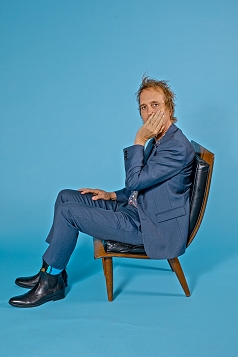San Francisco Reader
Light Finally Shines on Chuck Prophet
There’s been lots of water under the bridge since Chuck Prophet’s band Green On Red tried to take the airwaves by storm in the 1980s. They wrote the right songs, had the right look, and performed a kick-ass live show. Big record labels rolled out the red carpet and extended Big Time contracts. But things just never panned out. Chuck quit the band, cleaned up his act, and throughout the ‘90s released critically-acclaimed, slim-selling CDs. But suddenly, Chuck Prophet’s on the radio. “Summertime Thing” is a hit, and finally, finally, America’s getting a taste of the genius of Chuck Prophet.
Jeff Troiano: What’s happening, Chuck?
Chuck Prophet: Not much shaking here. I finally resurfaced after about six months of submarine duty.
How long have you been home?
I guess for about a week. I went to Nashville and did some work after the tour ended.
How do you like that Nashville scene these days?
Well, I dig it, you know, because for me as a writer, well, for a number of reasons. I don’t really party anymore, so that’s what’s left of my social life-writing with other people. And Nashville is the last vestige of any sort of Brill Building spirit.
What kind of building?
The Brill Building was a place in New York where Carole King and Doc Palmis and Gerry Goffen wrote songs. If you got lucky, somebody might record one.
You’ve had some luck in that regard lately. Who’s been cutting your tunes?
Well, I’ve had a bunch of obscure records over the years, but last year I did have a top-40 single by a girl named Cyndi Thomson. It caught on. Cyndi’s a nice Christian girl, farm-fed, centerfold material. My friend Kim Richey and I wrote a song called “I’m Gone,” actually upstairs from the Red Vic on Haight Street. It’s kind of a ‘60s Tommy James kind of song. We made this real ghetto demo of it in this crappy studio with a cement floor, and we played it and cut it and put a few things on it, and we decided it needed bongos, and a year later it comes out on the Cyndi Thomson record-with bongos.
So they stayed true to the Haight Street feel?
Getting a song cut, even if the version strays off from what you had envisioned, is amazing. There’s no such thing as a bad cover version of a song. It’s a good day.
How do you get compensated when someone else makes a hit out of your song? Is that big money?
Well, yeah, there’s sort of a bittersweet ending to that story that I’m not going to bore you with, as far as making bad business decisions. On a record like that, you should make some change. You get compensated for every time it’s sold; you get your pennies for every time it’s played on the radio. It’s all gravy.
The reviews have been very positive for your new CD, “No Other Love.” How’s it selling?
This record was pretty rare. There was probably less blood on the floor after we finished this one than any of the others. We caught a little bit of a wave with the single on the radio. And for so many years we had just ignored North America, hoping it would just go away. Not that we were selling out stadiums or ballrooms across Europe, but Europe has always been good to us. Our single has allowed us to infiltrate pop culture, just a skinny little foot in the door. I heard it coming out of a little speaker in a salad bar in Philadelphia, which was rather cool. That helped a lot. And Lucinda Williams took us out on tour all summer; that really helped with record sales.
How did that happen with Lucinda?
My A&R guy, Peter Jasperson, is an old friend of hers. He played the record for her, she liked what she heard, looked up and said, “Do you think he’d come out on tour with me?” That was it.
How many shows did you do with her?
It might have been 20-some odd dates with her. She only plays three or four times a week, so we were out there for a couple of months in the Midwest and the East Coast.
What did you do with all of that downtime on the road?
We did everything we could do to keep up with her two buses. I tell ya’, man, I mean sometimes there might be 800 miles between gigs, and I have an ‘88 Dodge Ram, so we spent a lot of time sucking her diesel, as they say. But the highlight of the whole thing for me was when we had this show at an amphitheater, and the weather was beautiful, and these beach balls were bouncing everywhere. Lucinda just kept looking at these things while she singing like a puppy, and she said, “Heck, I don’t know. It’s a summertime thing.” But there were many nights when we’d play the gigs and we’d gather around the catering, and we’d have an official band meeting, and we’d say, “Okay, tonight, after we finish our set let’s load up the van, get the union guys to help, and get the fuck out of here, and try to get in four hours tonight. So we’d make the grandiose plans and then, inevitably, when the time arrived, I’d look around for everybody and they’d be glued to the side of the stage watching Lucinda’s first encore. Night after night, watching Lucinda is like going to church or going to school or both.
You tasted success in the past, during the Green On Red days. Did you ever have the big tour bus?
There were times. I mean, somebody else was paying for it. Yeah, we tasted success, but we were always well under the radar. We had a couple of major deals with labels, but we were always kind of stowaways for those labels. Eventually they’d have a board meeting and say, “Who the fuck are these guys?”
The new stuff seems to have lots of interesting influences. I hear a bit of hip-hop, some Middle Eastern, some sampling, and of course the roots-based stuff. How’d that happen?
As a songwriter, I’m a slave to traditional song craft, whatever I do. I mean, my heroes are still going to be Dylan and Carole King and Hank Williams. But for me, the process of making new records is a matter of constantly seeking new ways to cast the movie. I’m turned on by people like Moby and DJ Shadow, and I appreciate what those guys have been able to do by bending traditional song structures. As much as I admire that stuff, I’m still a “first verse, first chorus” kind of guy. I see some people out there taking some sort of modern approach and trying to shoehorn it into their songs, but that doesn’t really work. You’ve got to listen to the song’s needs and go with that.
How do you categorize your sound these days?
What I do is “American” music. You might call it “Americana.” I just do what I do, throw in what interests me, what I gravitate toward, throw it into a pot, bring it to a boil, and I see what floats to the top. The European tradition of music is that you play music as it’s written on the page; I’m not part of that tradition.
Which radio stations are playing “Summertime Thing”? What do you call that format?
There’s a format called AAA-WXRT in Chicago; KFOG here in San Francisco; there are a lot of them, kind of like KFOG. KFOG has had an incredibly profound affect on the things here at Chuck Prophet, Inc. I mean, I’ve got my ‘88 Dodge Ram van with 250,000 miles on it; I’ve got a five-piece band; I’ve got a drummer with a teenage daughter, and radio has really helped. I’d heard about good things like this happening, and I’d read about it. It’s just wonderful.
I heard something about a national TV appearance…
We did the Craig Kilborn Show. It was pretty exciting, pretty nerve-wracking. We had a rehearsal to set the camera moves and stuff, and you play it once through for the audience and that’s it. It was cool. Craig is not at his best when you’re playing, but I kept pointing over there and yelling at him, “Yo, Craigy, ‘I bow down and pray to every woman I see. Can you feel me?’” So that was sort of my inside joke. But he was pretty cool. He tracked me down into my dressing room and said, “I’m hearing a little Iggy Pop in there.” And I said, “Yeah.” And he said, “I’m hearing a little bit of Dylan, a little Beck,” and I said, “Yeah, yeah, yeah.”
Who are you listening to these days?
“Leonard Cohen’s Greatest Hits;” David Holmes’ Organization; I like the new Cornershop record. I like a little bit of the new Dixie Chicks’ record. I listen to a lot of old music and as much new stuff as I can. When it comes to songwriters, it’s still Warren Zevon, John Prine, and Randy Newman for me.
What’s it like doing what you do from here in San Francisco? Is it awkward sometimes? I mean, do you ever want to be in L.A. or living in Nashville?
No, I love it here. There’s just something in the air here. It sounds kind of corny, but there’s just a certain spirit and a certain quality to the light that I love. I moved here to go to college, and it has just always seemed like a place where people were waving their freak flags high. I’ve always been able to find a place to play and to work with some great musicians. And it’s not an industry town; it’s a town for freaks.
Who would you recommend that we listen to locally these days?
There’s a guy in the Mission from Detroit, Kelly Stoltz. We played a gig with him, and he gave me a vinyl record that he’d recorded on his 8-track. It’s probably one of the most beautiful things I’ve heard-that I can ever remember hearing. I’m all for Kelly Stoltz.
I’m going to throw a few names at you. In 10 words or less, tell me what you think. Here’s the first one: Eminem.
Stone cold genius.
Joe Henry.
Madonna’s brother-in-law.
Ryan Adams.
He’s just an exceptionally talented puke.
Britney Spears.
No redemption there.
Bruce Robison.
Oh, writer of perhaps the best song to come out in 2002-“Traveling Soldier”-as covered by the Dixie Chicks. If it doesn’t bring tears to your eyes, then just check yourself for a pulse.
Gram Parsons.
Beyond country rock; beyond rehab.
And last but not least, Mr. Bob Seger.
Vastly underrated.
Kelly Willis made the following quote about you: “If I could sing like anyone, I’d sing like Chuck Prophet.” What do you think of that?
She was confused but I’m not gonna call her on it.
Do you care what anyone else thinks about your music?
I can’t afford to care too much. I had a conversation with a friend the other who said, “Well, I guess everybody’s happy now, now that the record’s doing well.” What do I fucking care? I’d never get anything done. And that’s the kiss of death to start to care too much. Don’t get me wrong-I want the love. But I don’t wanna have to work to hard for it.
by
Jeff Troiano
on
December 31, 2002
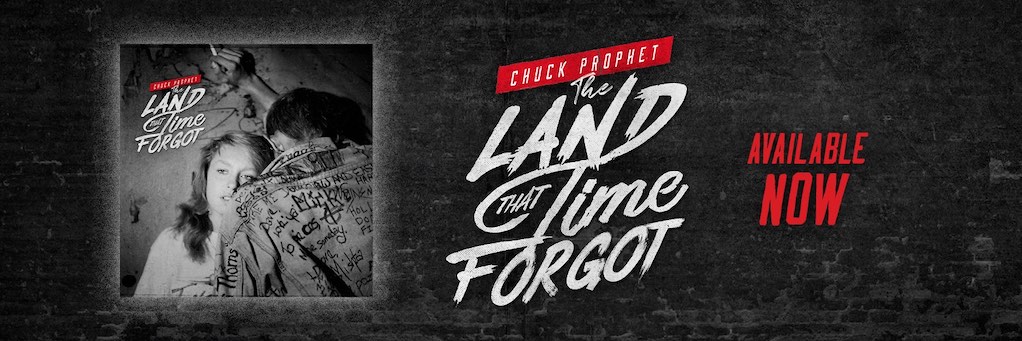




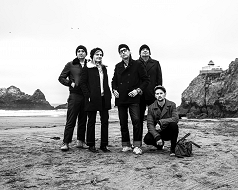
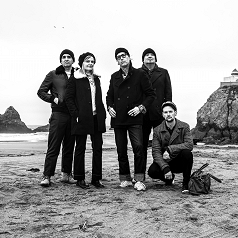
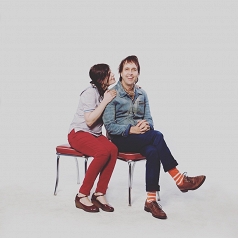
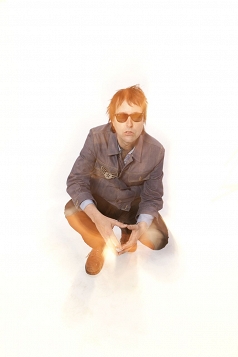
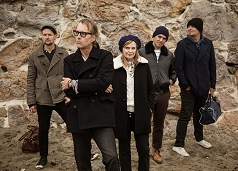
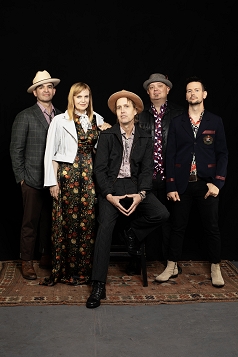
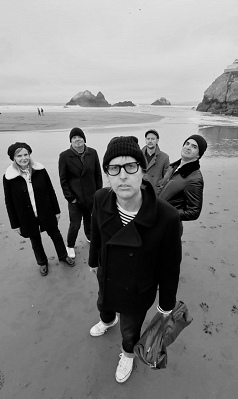
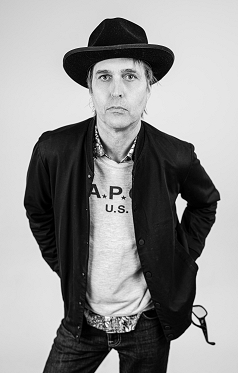
3_238_159auto_s_c1.jpeg)
